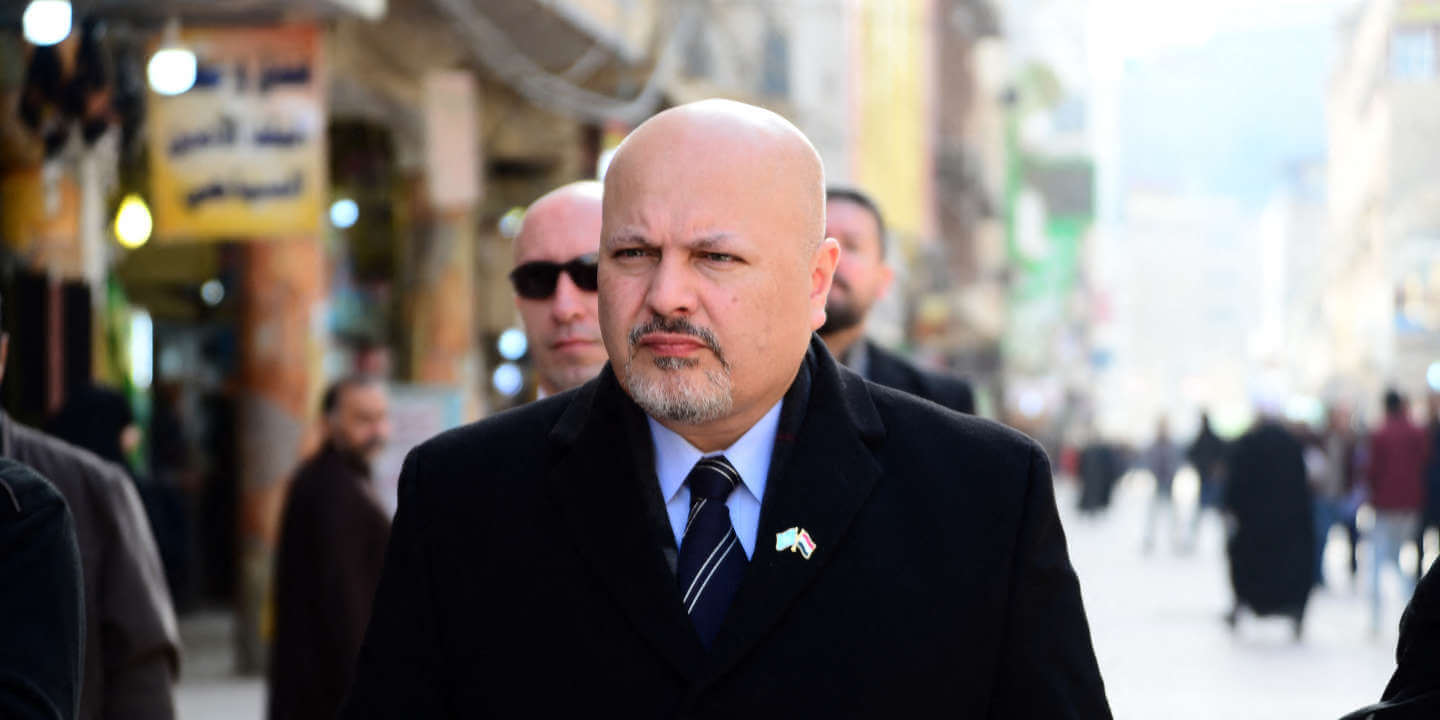On Friday, British human rights lawyer Karim Khan was elected as the new Chief Prosecutor of the International Criminal Court, and will replace the incumbent Fatou Bensouda from Gambia on June 15, when he will begin his nine-year term. Khan was not a consensus candidate and was only declared victorious after securing 72 votes in a second round of voting, defeating Irish prosecutor Fergal Gaynor (42 votes), Spanish judge Carlos Castresana (5 votes), and Italian prosecutor Francesco Lo Voi (3 votes).
According to the United Nations (UN), Khan has experience as a prosecutor, a victim attorney, and a defence lawyer in national and international criminal tribunals, including the ICC, the International Criminal Tribunal for Rwanda (ICTR), the International Criminal Tribunal for the Former Yugoslavia (ICTY), the Extraordinary Chambers within the Cambodian Courts (ECCC), the Special Court for Lebanon, and the Special Court for Sierra Leone.
He has previously led a special UN investigation into war crimes, genocide, and crimes against humanity committed by Islamic State (IS) militants, and has pushed for a procedure that mimics the Nuremberg trials for Nazi war criminals. He has also acted as a prosecutor in investigations related to Yugoslavia and the Rwandan genocide.
However, he has also courted controversy for representing Self al-Islam, the son of former Libyan dictator Muammar Gaddafi. Khan has also served a defence counsel for ex-Kenyan vice-president William Ruto after he was charged with crimes against humanity for directing post-electoral violence in 2007 that led to 1,200 deaths. In fact, Kenya at first opposed Khan’s candidacy for the post.
Khan steps into the cauldron that has emerged during Bensouda’s tenure, which has been largely fuelled by opposition from the United States (US) and Israel, both of whom are not members of the court, and their allies. The US, in particular, has been enraged over investigations into Israel as well as American troops in Afghanistan
Last week, ICC judges ruled that the court has jurisdiction to investigate alleged war crimes by the Israeli Defence Forces (IDF), Hamas, and other Palestinian armed groups in Israeli-occupied territories of the West Bank, Gaza, and East Jerusalem.
Last June, former President Donald Trump signed an executive order that imposed sanctions on all ICC employees involved in the Afghanistan case by blocking their assets and their entry into the US. On September 2, the Trump administration extended these sanctions to Chief Prosecutor Fatou Bensouda and Phakiso Mochochoko, who is the Head of the Jurisdiction, Complementarity and Cooperation Division.
Biden has not indicated whether these measures will be relaxed and has echoed Trump by calling out Bensouda and the ICC for unfairly targeting Israel. Although Washington has now rejoined the UN Human Rights Council, it has made no efforts to ratify the Rome Statute, which guides the ICC.
Khan will also have to battle criticisms that the Court has presided over far too few prosecutions, which has severely undermined its credibility. In fact, in December, Bensouda announced that the ICC had dropped an investigation into war crimes committed by the United Kingdom (UK) in Iraq between 2003 and 2008, despite saying that there was “reasonable basis to believe” that several war crimes, including rape, torture and wilful killing, were committed by the British armed forces in Iraq. Similar acquittals were delivered for former Ivory Coast President Laurent Gbagbo and former Democratic Republic of Congo (DRC) vice-president Jean-Pierre Bamba.
The ICC did, however, recently convict the former commander of the Lord’s Resistance Army, Dominic Ongwen, from Uganda for “murder, rape, sexual enslavement, and enlisting child soldiers”.
Bensouda has also opened a formal investigation into war crimes and crimes against humanity committed by both the Nigerian Security Forces’ (NSF) and terror group Boko Haram. She has also indicated a desire to look into similar allegations in Ukraine that will investigate war crimes and crimes against humanity committed by pro-Russian rebels and Ukrainian government forces.
She is also conducting parallel investigations into: the DRC, Sudan, the Central African Republic, Kenya, Libya, Côte d'Ivoire, Mali, Georgia, Burundi, Bangladesh, Myanmar, and Afghanistan. At the same time, her office is also overseeing preliminary examinations of Bolivia, Colombia, Guinea, the Philippines, and Venezuela.
After the Rome Statute was adopted in 1998, the ICC came into force in 2002, and was established to prosecute individuals for genocide, crimes against humanity, war crimes, and the crime of aggression. However, from the 193 UN member-states, only 123 are members of the ICC, with the US, Israel, China, and Russia among the absent parties. Thus, Khan faces somewhat of an uphill battle to keep the ICC relevant, given that many of the world’s foremost powers do not recognise the legitimacy of the court.
ICC Elects UK Lawyer Karim Khan as New Chief Prosecutor to Replace Fatou Bensouda in June
Khan secured 72 votes in the second round of voting, defeating candidates from Ireland, Spain, and Italy.
February 16, 2021

IMAGE SOURCE: HAIDAR HAMDANI / AFP VIA GETTY IMAGESIncoming International Criminal Court Chief Prosecutor Fatou Bensouda
